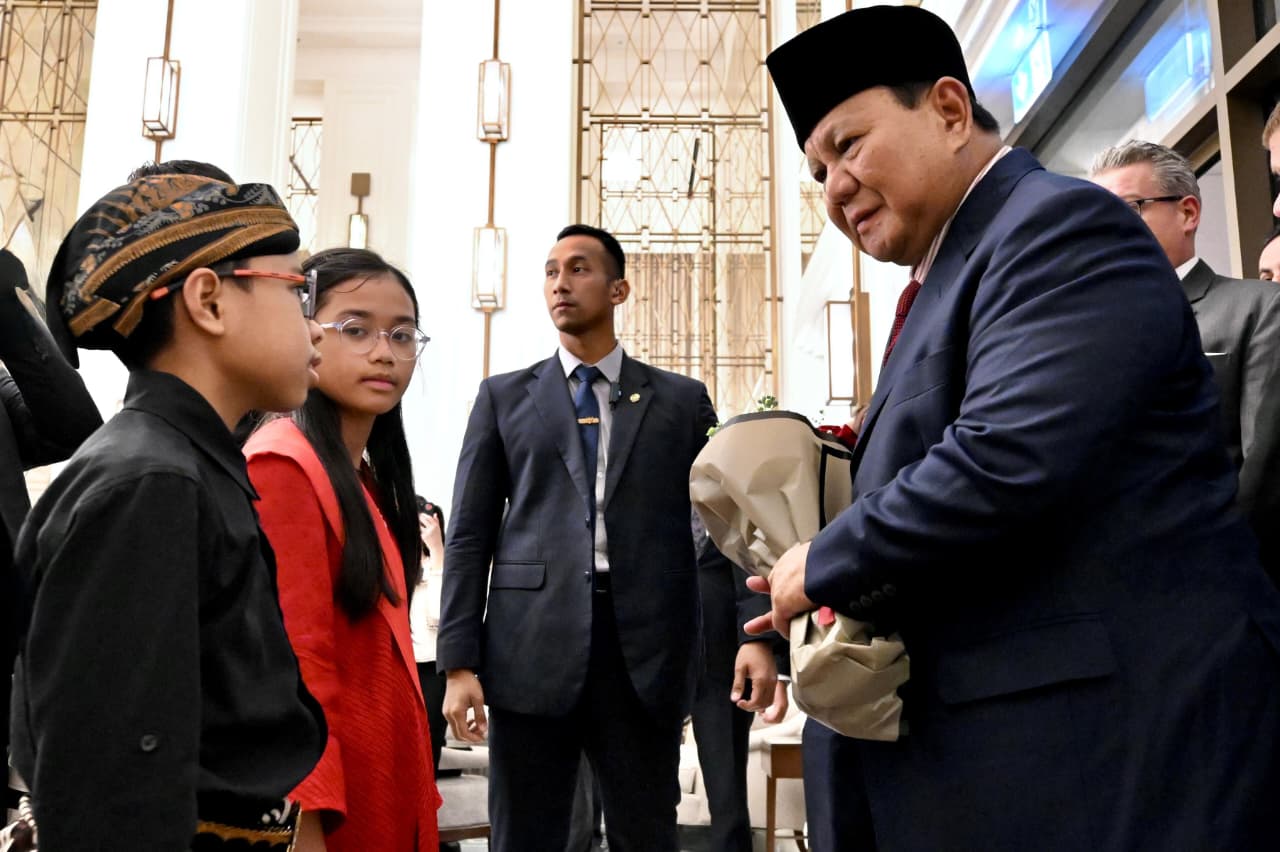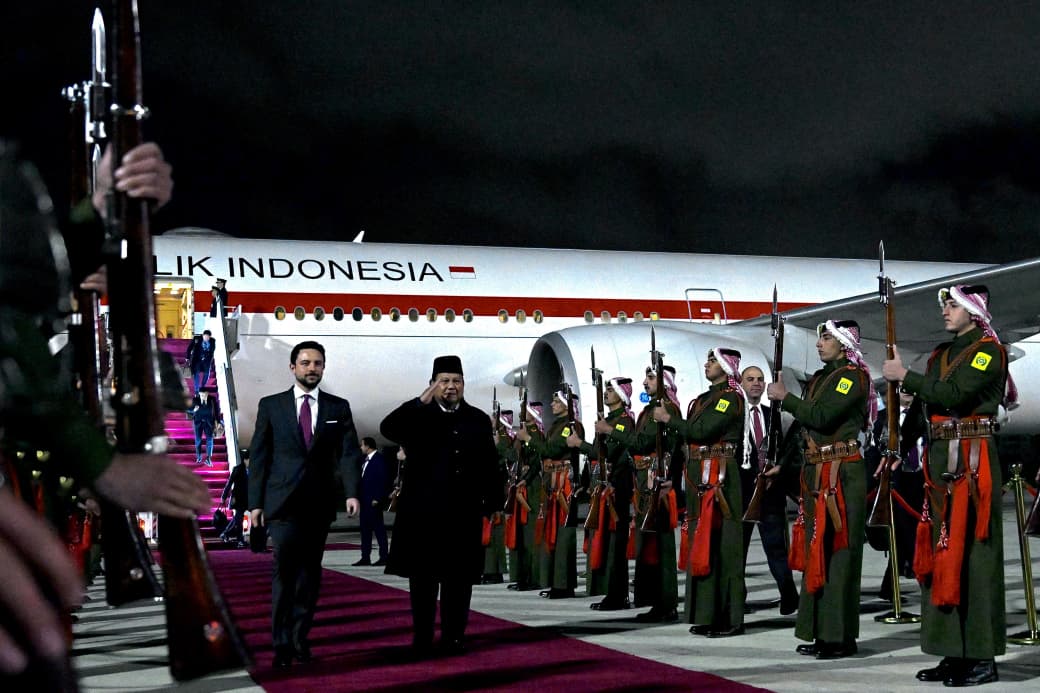Government to Establish a National Committee on Sharia Finance
 In order to support national economic development and to accelerate the development of sharia finance sector, the Government considers that it is necessary to strengthen coordination, synchronization and synergy between authorities, ministries/institutions, and other stakeholders in sharia finance sector by establishing a national commitee on sharia finance sector. Therefore, President Joko Jokowi Widodo has signed a Presidential Decision (Perpres) Number 91 of 2016 on National Commitee on Sharia Finance on 3 November 2016.
In order to support national economic development and to accelerate the development of sharia finance sector, the Government considers that it is necessary to strengthen coordination, synchronization and synergy between authorities, ministries/institutions, and other stakeholders in sharia finance sector by establishing a national commitee on sharia finance sector. Therefore, President Joko Jokowi Widodo has signed a Presidential Decision (Perpres) Number 91 of 2016 on National Commitee on Sharia Finance on 3 November 2016.
According to the Perpres, the National Commitee on Sharia Finance (KNKS) is a non-structural institution that carries out the duties to accelerate, widen, and escalate the growth of sharia finance in order to support the national economic development.
The National Commitee on Sharia Finance (KNKS) carries out the functions of: a. Providing policy direction recommendation and national development strategic program on sharia finance sector; b. Co-ordinating the formulation and implementation of the plans of policy direction and strategic programs in sharia finance; c. Formulating and giving recommendation for solving problems on sharia finance; and d. Monitoring and evaluating the implementation of policies on and strategic programs in sharia finance.
Article 5 of the Presidential Decision stated: The National Committee on Sharia Finance (KNKS) consists of: a. Chairman; b. Vice Chairman; c. Board of Directors; and d. Executive Management.
According to the Perpres, the National Commitee on Sharia Finance (KNKS) is chaired by President of the Republic of Indonesia while the Vice President will act as the Vice Chairman.
Whereas the Board of Directors consists of: 1. Coordinating Minister for Economic Affairs; 2. Minister of National Development Planning/Head of National Development Planning Agency (Bappenas); 3. Minister of Finance; 4. Minister of Religious Affairs; 5. Minister of State-Owned Enterprises; 6. Minister of Cooperatives and Small and Medium Enterprises; 7. Chairman of the Board of Commissioners of the Financial Services Authority (OJK); 8. Governor of Bank Indonesia; 9. Chairman of the Board of Commissioners of the Deposit Insurance Corporation (LPS); and 10. Chairman of the Indonesian Ulema Council (MUI).
The Board of Directors has the tasks to: a. Assist Chairman and Vice Chairman in formulating policy direction and national strategic programs in sharia finance sector; b. Give directions to the Executive Management; and c. Monitor and evaluate the performance of the Executive Management. In performing such tasks, the Board of Directors is responsible to the Chairman. This provision is stated in Article 9 of the Perpres.
Executive Management
According to the Perpres, the Executive Management consists of: a. Executive Director; b. Secretariat; and c. Working unit.
According to Article 10 Paragraphs (1) and (2) of the Perpres, the Executive Management is led by an Executive Director who is responsible to the Board of Directors.
The Executive Management has duties to implement the policy direction and national strategic program as well as perform sharia finance activities formulated by the Board of Directors.
In performing its duties, the Executive Management carries out the functions to: a. Prepare the formulation of recommendation of policy direction and national development strategic program in sharia finance sector; b. Manage the coordination of the framing and the implementation of the strategic program plan in sharia finance sector; c. Manage and process data and information about the development of national sharia finance; d. Monitor and evaluate the formulation and implementation of the policies and the national development strategic program in sharia finance sector; e. Perform administrative tasks; and f. Perform other tasks given by the Board of Directors.
According to Article 13 Paragraphs (1) and (2) of the Perpres, the Executive Management shall be given other financial and facilities benefits that will be regulated by a presidential decision.
Regarding the Secretariat, according to the Perpres, it will be ex-officio, which functionally shall be performed by one of the working units in Ministry of National Development Planning (PPN)/National Development Planning Agency (Bappenas).
According to the Perpres, the Executive Director is appointed by the Chairman by the recommendation of the Board of Directors for 5-year service period and could be reappointed.
The Perpres also asserts that Chairman has the right to discharge the Executive Director based on the work performance and by the recommendation of the Board of Directors
Meanwhile, the Executive Director shall be selected by an open selection, which will be regulated by the Regulation of KNKS.
The Executive Management, according to the Perpres, shall be comprised of professionals working full-time. The Executive Director has the rights to appoint or discharge the professionals. Furthermore, Executive Cirector may also form a task force to help KNKS in performing its duties.
Article 19 of the Perpres mentioned that the working professionals may be Government employees (PNS) and non-Government employees.
Article 21 of the Perpres asserts that the professionals from the non-Government employees shall not receive pensions and or severance pay when their period of service ends.
Every fund required for performing the duties of KNKS and its Secretariat shall be sourced from the State Budget (APBN) and/or other legitimate and unbinding fund resources in accordance with the rules and regulation.
Transitional Provisions
The first selection of Executive Director and the establishment of Executive Management Secretariat will be coordinated by the Minister in charge in national development planning.
Moreover, based on Article 26 Paragraph (2) of the Perpres, the funding of Executive Director selection and Secretariat establishment shall be sourced from the budget of Ministry of National Development Planning/National Development Planning Agency (Bappenas).
The Executive Management must be established no later than 6 months since the Presidential Decision is enacted. Meanwhile its duties and functions must be performed since the appointment of the Executive Director. The Presidential Decision that is promulgated on 8 November 2016 by the Minister of Law and Human Rights, Yasonna H. Laoly, also comes into effect since the day of its promulgation.
(Pusdatin/ES) (SU/LW/Naster)








